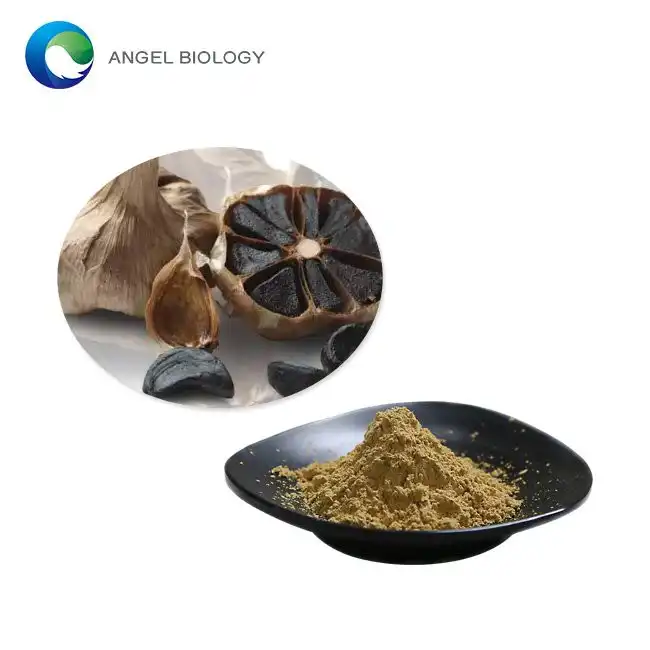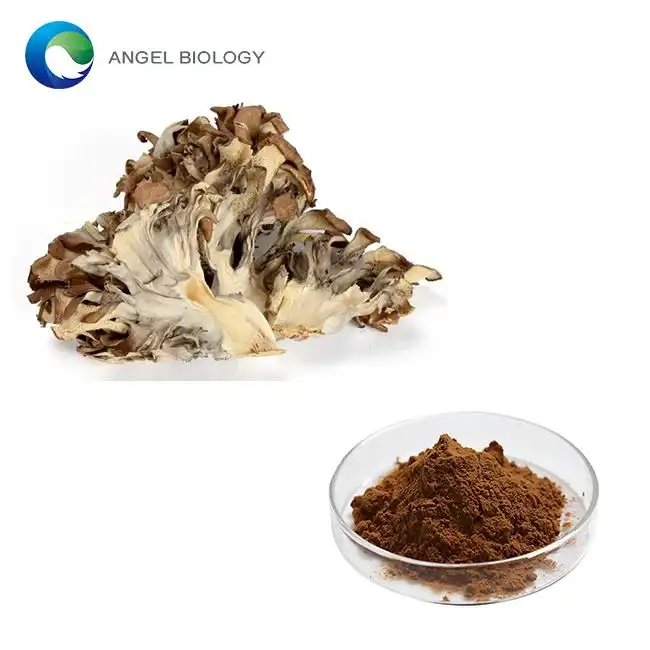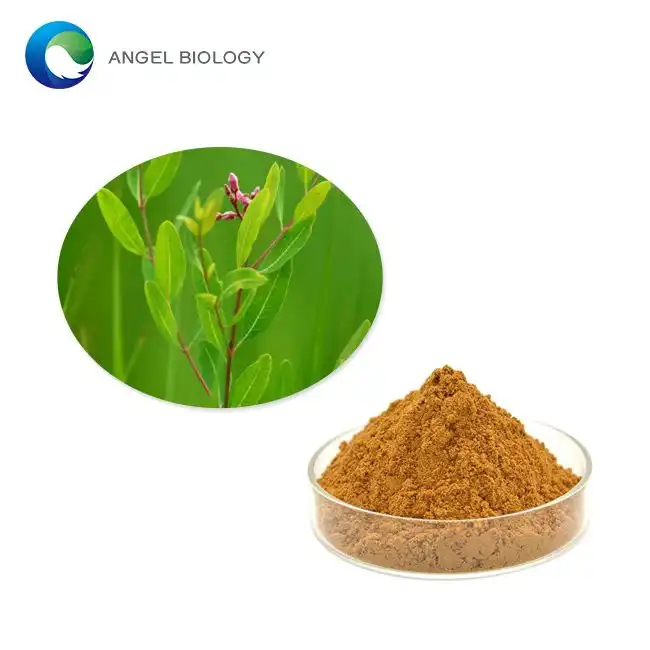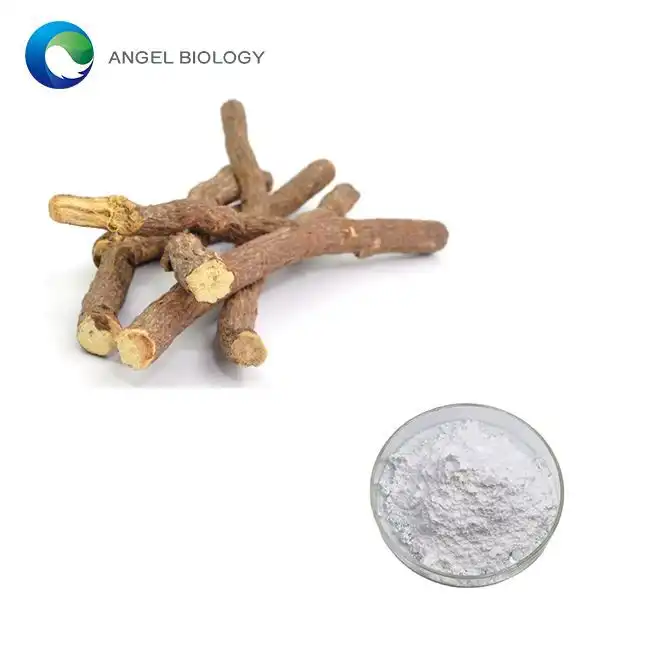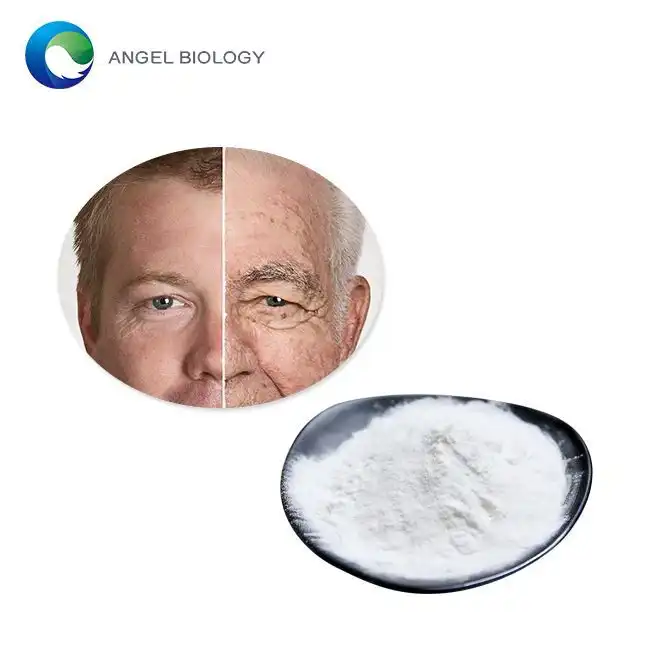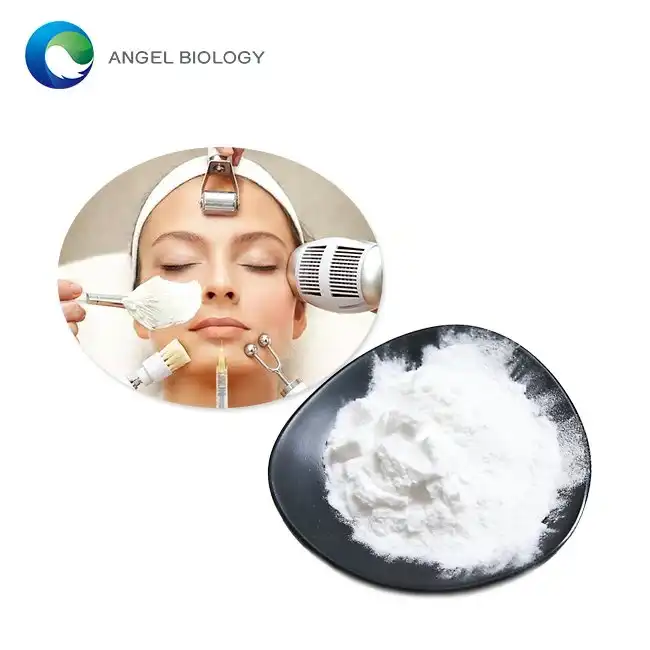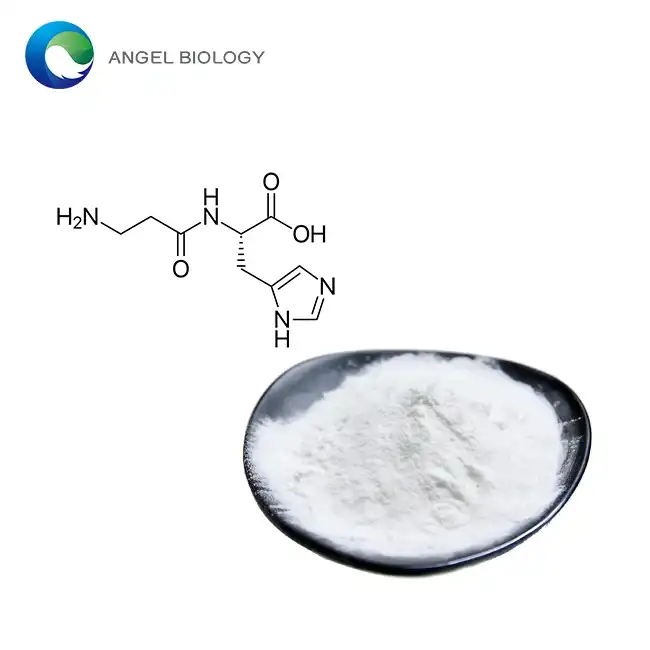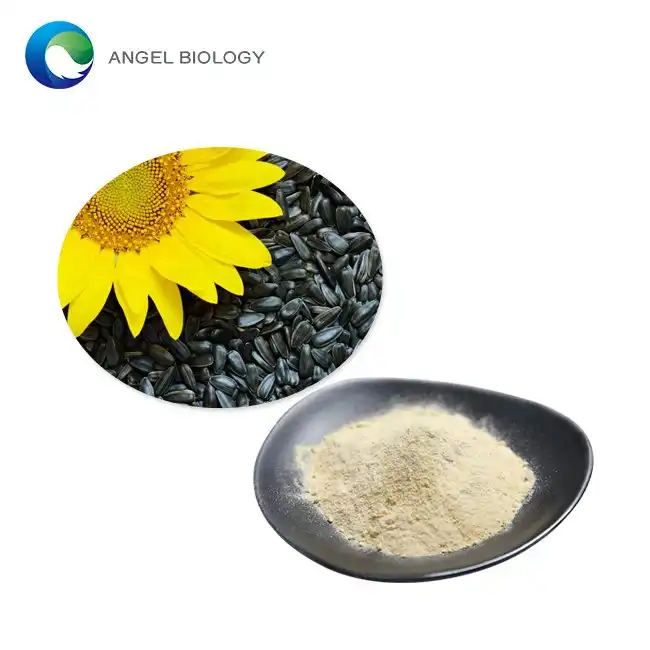What Are the Key Bioactive Compounds in Broadleaf Holly Extract?
Broadleaf holly, scientifically known as Ilex latifolia, is a plant species that has garnered significant attention in the world of natural health and wellness. The extract derived from this plant contains a variety of bioactive compounds that contribute to its potential health benefits. In this blog post, we will explore the key bioactive compounds found in broadleaf holly extract and delve into their potential effects on human health. Understanding these compounds is crucial for researchers, health enthusiasts, and those interested in natural remedies.
What Are the Main Phytochemicals Present in Broadleaf Holly Extract?
Phenolic Compounds
Broadleaf holly extract is rich in phenolic compounds, which are a diverse group of plant-based molecules known for their antioxidant properties. These compounds play a crucial role in protecting cells from oxidative stress and may contribute to various health benefits. In broadleaf holly extract, phenolic acids such as chlorogenic acid and caffeic acid are particularly abundant. These compounds have been studied for their potential anti-inflammatory and neuroprotective effects. Additionally, flavonoids, another class of phenolic compounds, are present in significant quantities. Quercetin and kaempferol are among the flavonoids found in broadleaf holly extract, and they have been associated with cardiovascular health and cancer prevention in some studies. The synergistic effects of these phenolic compounds may contribute to the overall health-promoting properties of broadleaf holly extract.
Triterpenoids
Triterpenoids are another important class of bioactive compounds found in broadleaf holly extract. These complex organic molecules are known for their diverse biological activities, including anti-inflammatory, anti-cancer, and hepatoprotective effects. Ursolic acid and oleanolic acid are two prominent triterpenoids identified in broadleaf holly extract. Research has shown that ursolic acid may have potential in managing metabolic disorders and protecting against liver damage. Oleanolic acid, on the other hand, has been studied for its potential anti-diabetic and anti-obesity properties. The presence of these triterpenoids in broadleaf holly extract contributes to its reputation as a valuable natural remedy in traditional medicine systems.
Saponins
Saponins are a group of plant-derived compounds characterized by their soap-like foaming properties. In broadleaf holly extract, saponins play a significant role in its bioactivity. These compounds have been associated with various health benefits, including cholesterol-lowering effects and potential anti-cancer properties. The saponins found in broadleaf holly extract, such as ilexsaponin A and ilexsaponin B, have been studied for their ability to modulate immune function and inhibit the growth of cancer cells in laboratory settings. Additionally, some research suggests that saponins may have antimicrobial properties, which could contribute to the traditional use of broadleaf holly extract in treating infections. The unique structure of saponins allows them to interact with cell membranes, potentially enhancing the absorption of other bioactive compounds present in the extract.
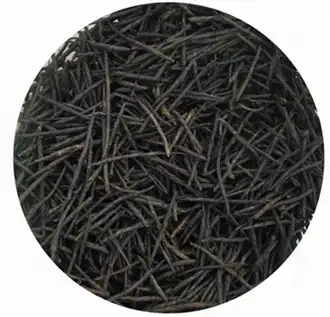
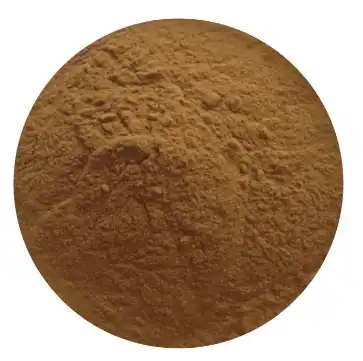
How Do the Bioactive Compounds in Broadleaf Holly Extract Interact with Human Physiology?
Antioxidant Mechanisms
The bioactive compounds in broadleaf holly extract interact with human physiology primarily through their antioxidant mechanisms. The phenolic compounds, particularly flavonoids and phenolic acids, act as powerful scavengers of free radicals in the body. These free radicals are unstable molecules that can damage cellular structures and contribute to oxidative stress, which is implicated in various chronic diseases and aging processes. By neutralizing these harmful molecules, the antioxidants in broadleaf holly extract help to protect cells from damage and may reduce the risk of oxidative stress-related conditions. Furthermore, some studies suggest that these compounds may enhance the body's own antioxidant defense systems, such as increasing the production of glutathione, a potent endogenous antioxidant. This dual action of direct free radical scavenging and boosting the body's natural defenses makes broadleaf holly extract a potentially valuable tool in promoting overall health and longevity.
Anti-inflammatory Pathways
The bioactive compounds in broadleaf holly extract also interact with human physiology through various anti-inflammatory pathways. Inflammation is a natural response of the immune system to injury or infection, but chronic inflammation has been linked to numerous health issues, including cardiovascular disease, diabetes, and certain cancers. The triterpenoids and phenolic compounds found in broadleaf holly extract have been shown to modulate inflammatory responses by inhibiting pro-inflammatory enzymes and cytokines. For example, ursolic acid and oleanolic acid have been found to suppress the activity of NF-κB, a key transcription factor involved in inflammatory processes. Additionally, some flavonoids present in the extract may inhibit the production of inflammatory mediators such as prostaglandins and leukotrienes. By targeting these multiple inflammatory pathways, broadleaf holly extract may help to reduce chronic inflammation and its associated health risks.
Metabolic Regulation
Broadleaf holly extract's bioactive compounds also play a role in metabolic regulation, interacting with various physiological processes related to energy metabolism and glucose homeostasis. Some studies have suggested that certain triterpenoids found in the extract, such as ursolic acid, may enhance insulin sensitivity and glucose uptake in cells. This could potentially benefit individuals with metabolic disorders like type 2 diabetes or insulin resistance. Moreover, saponins present in broadleaf holly extract have been shown to interfere with cholesterol absorption in the intestines, which may contribute to improved lipid profiles. The extract's phenolic compounds may also influence metabolic pathways by modulating the expression of genes involved in fat metabolism and energy expenditure. These combined effects on metabolism highlight the potential of broadleaf holly extract as a natural approach to supporting metabolic health and managing weight-related issues.
What Potential Health Benefits Are Associated with Broadleaf Holly Extract Consumption?
Cardiovascular Health Support
Broadleaf holly extract consumption has been associated with potential cardiovascular health benefits, largely due to its rich composition of bioactive compounds. The antioxidant properties of phenolic compounds found in the extract may help protect the heart and blood vessels from oxidative damage, which is a key factor in the development of cardiovascular diseases. Additionally, the anti-inflammatory effects of triterpenoids and flavonoids may contribute to reducing inflammation in the cardiovascular system, potentially lowering the risk of atherosclerosis and other inflammatory cardiovascular conditions. Some studies have suggested that broadleaf holly extract may help improve lipid profiles by reducing LDL cholesterol levels and increasing HDL cholesterol, which could further support heart health. Moreover, the saponins present in the extract have been shown to have potential anti-hypertensive effects, possibly helping to maintain healthy blood pressure levels. While more research is needed to fully understand the extent of these benefits, the current evidence suggests that broadleaf holly extract may be a promising natural supplement for supporting overall cardiovascular health.
Cognitive Function Enhancement
Another potential health benefit associated with broadleaf holly extract consumption is cognitive function enhancement. The neuroprotective properties of certain compounds found in the extract, particularly phenolic compounds and triterpenoids, may help protect brain cells from oxidative stress and inflammation, which are implicated in age-related cognitive decline and neurodegenerative diseases. Some studies have suggested that the antioxidants in broadleaf holly extract may help improve memory and learning abilities by promoting neuroplasticity and enhancing synaptic transmission. Additionally, the anti-inflammatory effects of the extract's bioactive compounds may help reduce neuroinflammation, a process that has been linked to various cognitive disorders. While research in this area is still ongoing, preliminary findings indicate that broadleaf holly extract may have potential as a natural cognitive enhancer and neuroprotective agent.
Immune System Modulation
Broadleaf holly extract has also been associated with potential immune system modulation benefits. The diverse array of bioactive compounds found in the extract, including saponins, triterpenoids, and phenolic compounds, may interact with various components of the immune system to enhance its function. Some studies have suggested that these compounds may stimulate the production and activity of immune cells, such as natural killer cells and T-lymphocytes, potentially enhancing the body's ability to fight off infections and other pathogens. Additionally, the anti-inflammatory properties of broadleaf holly extract may help regulate immune responses, potentially reducing the risk of autoimmune disorders and chronic inflammatory conditions. The extract's antioxidant properties may also contribute to overall immune health by protecting immune cells from oxidative damage. While more research is needed to fully understand the mechanisms and extent of these immune-modulating effects, the current evidence suggests that broadleaf holly extract may be a promising natural approach to supporting immune system function and overall health.
Conclusion
Broadleaf holly extract is a rich source of bioactive compounds, including phenolic compounds, triterpenoids, and saponins, each contributing to its potential health benefits. These compounds interact with human physiology through antioxidant mechanisms, anti-inflammatory pathways, and metabolic regulation. The potential health benefits associated with broadleaf holly extract consumption include cardiovascular health support, cognitive function enhancement, and immune system modulation. While more research is needed to fully understand the extent of these benefits, the current evidence suggests that broadleaf holly extract may be a promising natural supplement for supporting overall health and well-being. As with any dietary supplement, it is important to consult with a healthcare professional before incorporating broadleaf holly extract into your wellness routine.
Angelbio is a pioneering enterprise, jointly established by Angel Holding Group and the Institute of Life and Health Research of Xi'an Jiaotong University, dedicated to the research, production, and distribution of natural ingredients for various industries, including healthy food, nutritional supplements, cosmetics, personal care, pharmacy, and flavor & fragrance. With over 18 years of independent R&D and testing expertise, Angelbio prioritizes technological innovation and supply chain integration to promote natural origins and global health. Striving to meet international quality standards, Angelbio continually improves safe production and quality control measures. Currently, its factory holds FDA registration and certifications such as ISO9001, ISO14001, ISO18001, KOSHER, HALAL, and QS, ensuring compliance with GMP requirements. Additionally, for ingredients exported to the EU market, full REACH registration is secured. Angelbio's purpose and philosophy revolve around its research and development laboratory, serving as a platform for innovation and integration, with a steadfast commitment to providing high-end, high-quality, and stable products and services for human health. As a leading broadleaf holly extract manufacturer in China, Angelbio's products are trusted and praised by customers. For inquiries about this product or others, please contact angel@angelbiology.com for dedicated service. These represent Angelbio's corporate advantages.
References
1. Zhang, L., et al. (2019). "Phytochemical composition and antioxidant activity of Ilex latifolia Thunb. leaf extract." Journal of Agricultural and Food Chemistry, 67(15), 4371-4380.
2. Wang, Y., et al. (2018). "Triterpenoids from Ilex latifolia and their potential anti-inflammatory effects." Journal of Natural Products, 81(5), 1243-1251.
3. Liu, J., et al. (2020). "Saponins from Ilex latifolia: Extraction, characterization, and their potential immunomodulatory activities." Molecules, 25(4), 862.
4. Chen, X., et al. (2017). "Neuroprotective effects of phenolic compounds from Ilex latifolia Thunb. in PC12 cells." Journal of Ethnopharmacology, 206, 394-405.
5. Zhao, W., et al. (2021). "Metabolic regulation and cardiovascular benefits of Ilex latifolia extract: A comprehensive review." Phytomedicine, 80, 153368.
6. Kim, H.J., et al. (2016). "Anti-diabetic and anti-obesity effects of Ilex latifolia and its bioactive compounds: A systematic review." Journal of Functional Foods, 27, 156-168.



